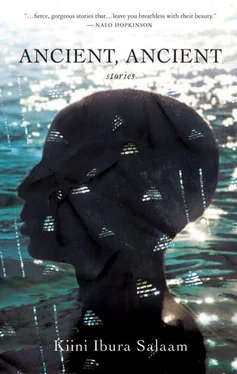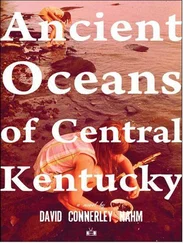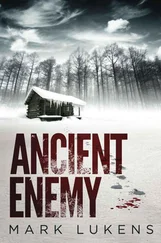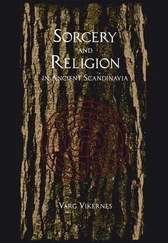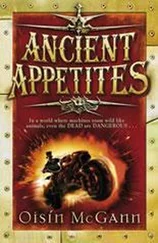When K-Ush finally yields to the pain, a warm wetness embraces her cheek. She opens her eye with a sigh. Once more, she has left the dogra. The ki-ra-he is with her, gently licking the side of her face. She feels no fear; she feels relief. Some small part of her knows she is sacrificing something huge, but in this moment she does not remember the seekers, she cannot hold the village in her mind. She is a wero full of exhaustion, need, and want. Her arms drop defenseless to her sides. The licking expands from her cheek to cover her entire face. Then a low sigh rumbles in her chest. The wet warmth nestles against her throat. Every inch of her body feels caressed. For a few delicious seconds, there is nothing. No sound, no guilt, and no pain. She exhales from deep down in her gut, from a place in her body that has never felt release. She cries out like a child, stretches, then surrenders, quietly wishing to die this way.
A chattering of far-away voices disrupts K-Ush’s calm. She clenches her eye tightly trying to keep the ki-ra-he’s embrace. She feels her body rising horizontally against her will. The warmth dissipates. She finally opens her eye to see the ceiling of the dogra drifting jerkily past her gaze. She feels fingers biting into her wrists, waist, and ankles as seekers hold her over their heads. The dogra is in chaos. Panicked faces surround her. All those patient seekers no longer sit in ordered rows. They swarm out of the exit, rising water rushing around their heels.
K-Ush tries to sit up, but the grip of insistent hands holds her prone. She tilts her head back and looks around. At the back of the dogra, the wall is destroyed. A huge hole bursts with furious streams of water. Suddenly K-Ush becomes aware that a terrible rain is pounding the exterior of the dogra. She feels a tingling—it is the ominous gathering of humidity and agitated air. The storm! The storm Sheya promised would be catastrophic. The storm K-Ush refused to prophecy about.
K-Ush twists her head around looking for Sheya. Her gaze bounces around the dogra, zigzagging with the frenzied movement of seekers. Then she sees her. Occupying a sacred space of stillness, Sheya sits cross-legged and silent. Her head leans against a still-intact wall. Her large eye is closed in rest. K-Ush howls her name, attempting to rouse her from sleep. Sheya doesn’t move.
K-Ush screams words, then sounds for Sheya, the old one who became her mother once she took oath. No one reacts to K-Ush’s hysteria. She beats at whatever flesh she can reach with her fists. The seekers take her blows, but they do not put her down. Suddenly she knows that Sheya cannot be awakened. Her voice dies in her throat. Her lips form the words of an ancient mourning song. Sheya’s corpse sits quietly in the rising waters, her posture erect as if she is watching over K-Ush as she always has.
K-Ush has never seen this much water. It is waist-deep and rising. A hastily crafted vessel bobs in front of the dogra waiting for K-Ush. She sees seekers wading in every direction. Some have village valuables bundled on their heads. Others ferry shivering families to safety. And there are those nearby, watching over her. She does not resist when the seekers place her in the rickety boat. Dampness soaks her thin robe as the seekers row her to the focor: the tallest structure in the village. The seekers motion frantically for K-Ush to leave the boat. She surveys them passively, then stands and hovers. The minute her feet no longer rely on the boat for balance, the seekers row away, returning to the dogra to save others.
K-Ush, misjudging the weight the rain has added to her heft, drops heavily onto the roof of the focor. Almost blinded by the diagonal assault of raindrops, she feels the seekers gathered on the roof turn and stare. For K-Ush, their awe is more assaultive than the rains. She folds her lips into a tight grimace and lifts her head in a regal attempt to hover, but the wet anchors her feet to the ground. She wraps her arms around her body and strides past them. In a remote corner, she turns her back to the seekers, pretends she is in her shro, and curls up to sleep.
The water swallows everything. After devouring the dogra, the storm turns to the focor, flooding the roof where K-Ush is recovering from seven days of offering prophecy. Even after the seekers who waited with K-Ush on the focor’s roof have been rowed away, K-Ush does not stir. It is as if she cannot feel the floodwaters licking at her curled up legs. She has completely surrendered to post-prophecy sleep.
A small band of seekers intent on saving the wero dare to lift K-Ush’s inert body, even though Sheya is not around to give them permission to do so. They settle her in the bottom of the last water vessel headed for unknown parts. But the storm is faster than they imagined. With a huge crack, water slams against wood, rousing K-Ush from sleep just before the vessel overturns and she is flung into the floodwaters.
K-Ush gasps, throat burning with unwelcome gulps of water. She kicks her legs wildly trying to propel herself toward the bobbing boat. The current drags her under, but a wero is built to endure. Using her large hands and feet she pushes herself up to the surface. She is dragged under again and again, but each time, she resurfaces, spitting out water and gulping for breath whenever her mouth meets air. Then survival is handed to her—the floodwaters slam her into the clutches of a tree.
Minutes slip by, but she does not move. She holds onto the tree, trembling. Finally, she clutches an overhead branch and hoists herself out of the water. She finds a foothold, then rests, gripping the tree tightly. Below, skik pots, farming tools, body coverings, xopas, everything that makes a home rips past on rushing currents. The branches beneath her feet bounce and sway. Then the bodies come: the bodies of seekers—beings who once prayed for her guidance—drift past, nothing more than useless hulks of flesh, face down in cruel waters.
Time passes on that treetop like it passes when she trances. K-Ush isn’t sure if she’s been clinging to the tree for minutes or hours. She is certain only of her exhaustion. As she wrestles with her weariness, she sees something distinct in the distance: a bloated carcass crowned by four stiff legs. As it drifts toward her, K-Ush feels a tingling at the top of her spine. The tingling shoots straight down her back when the creature is an arm’s-length away. The creature’s dead eye stares at her, its mouth open and that fearsome green tongue hanging out. K-Ush involuntarily draws herself up, away from the waters as if they will contaminate her with the ki-ra-he’s bloodlust. Then she laughs a laugh tinged with bitterness and self-ridicule. The wero, great saviors of the people, trained to resist the ki-ra-he, but with no plan in the event of a cataclysmic storm.
She is ready to surrender to the churning greed of the rising floodwaters, ready to slip down to the bottom and take a rest that does not stink of ho-resh-li and death, when a boat approaches. K-Ush hesitates. She is not certain that safety is what she desires. She does not lust to resume her task of feeding on seekers and giving prophecy, but something about the cloaked figure at the far end of the boat draws her away from the tree’s embrace. The figure beckons, and K-Ush steps onto the boat.
After she sits, she notices the strength of the rowers, the smooth synchronized movement of their arms, and, finally, she notices the holes. Each rower has two or three holes cut into his flesh. K-Ush looks up at the cloaked figure. One hand emerges from the cloak and throws back the hood. The cloaked face is angular, the head is bald. A second hand emerges to extend a dry cloak to be passed, from rower to rower to rower, to K-Ush.
“Who are you?” K-Ush asks as she presses the dry cloth into her lap.
Читать дальше
